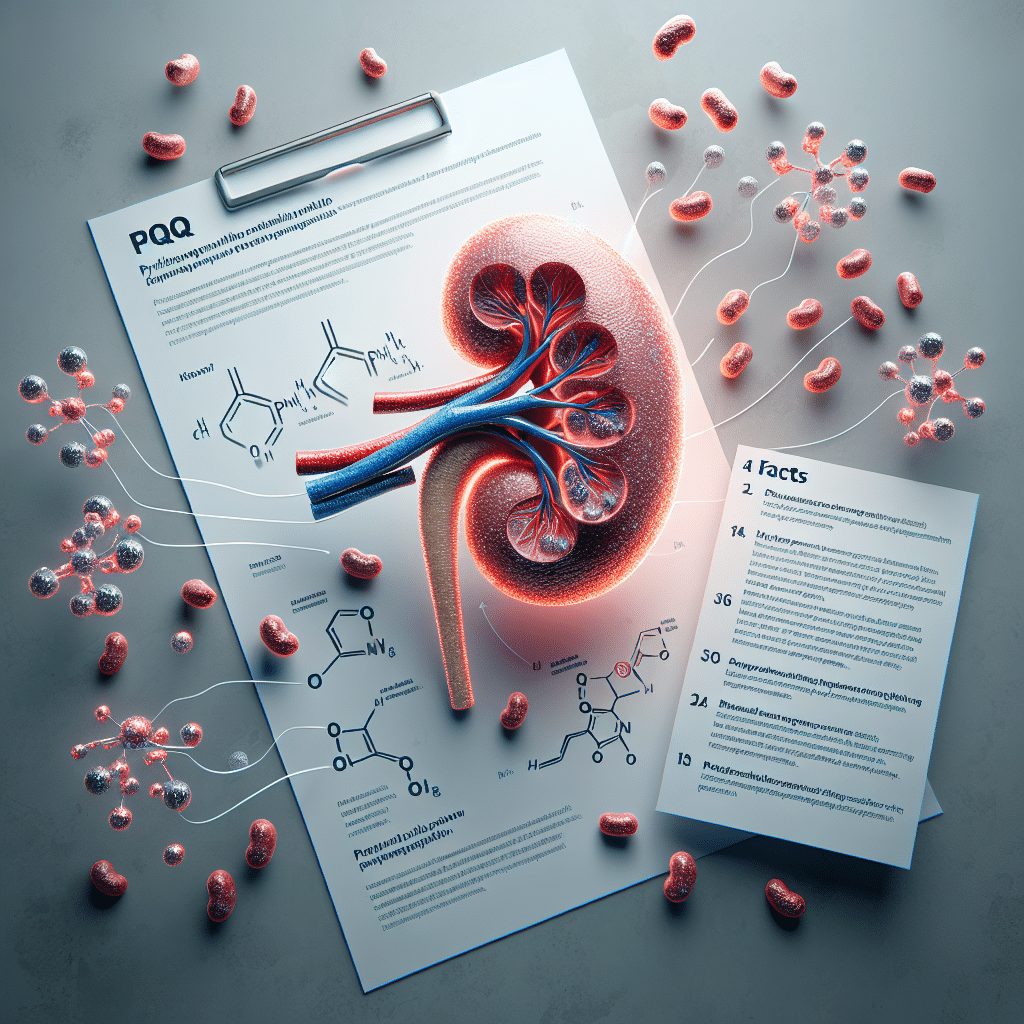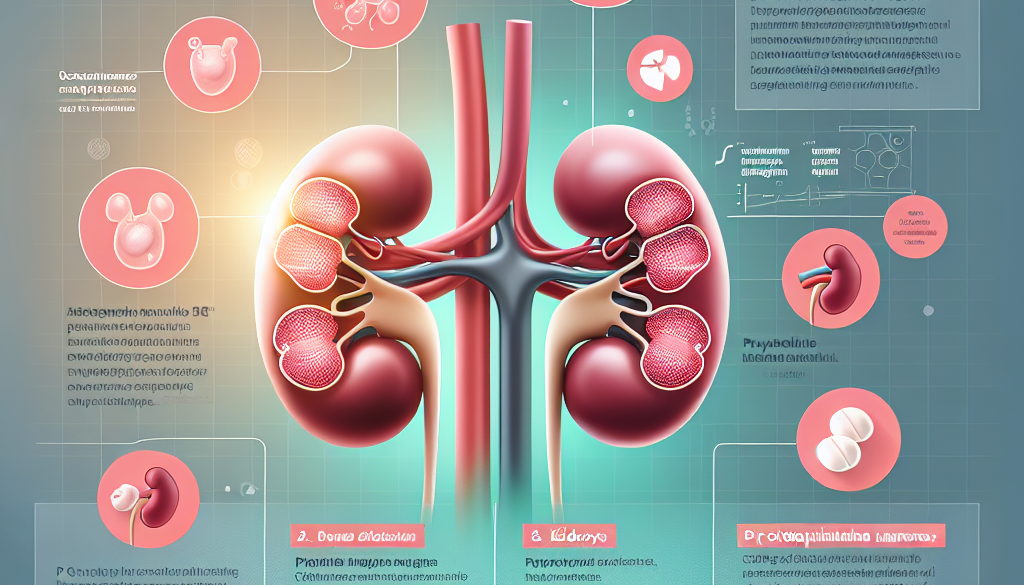Is PQQ Good for Kidneys? Facts
-
Table of Contents
- PQQ and Kidney Health: Unveiling the Facts
- Understanding PQQ: A Brief Overview
- The Kidneys: Vital Organs in Need of Protection
- Is PQQ Good for Kidneys? Investigating the Evidence
- Case Studies and Clinical Trials: PQQ in Action
- Recommended Dosage and Sources of PQQ
- Conclusion: PQQ’s Potential for Kidney Health
- Discover ETchem’s Protein Products
PQQ and Kidney Health: Unveiling the Facts

As the quest for maintaining optimal health continues, the focus on dietary supplements has intensified. One such compound that has garnered attention is Pyrroloquinoline quinone (PQQ), a small quinone molecule with antioxidant properties. This article delves into the potential benefits of PQQ for kidney health, supported by scientific research and studies.
Understanding PQQ: A Brief Overview
Pyrroloquinoline quinone, or PQQ, is a compound that exists naturally in many foods and is also synthesized by the human body. It plays a crucial role in cellular processes, including growth, development, and response to oxidative stress. As an antioxidant, PQQ protects the body from damaging free radicals and supports energy metabolism by aiding in the function of mitochondria, the powerhouses of the cells.
The Kidneys: Vital Organs in Need of Protection
The kidneys are essential organs responsible for filtering waste products, balancing electrolytes, and regulating blood pressure. Given their critical role, maintaining kidney health is paramount. Factors such as diabetes, high blood pressure, and chronic inflammation can impair kidney function, leading to chronic kidney disease (CKD) and, in severe cases, kidney failure.
Is PQQ Good for Kidneys? Investigating the Evidence
Recent studies have begun to explore the potential renal benefits of PQQ. Here’s what the research suggests:
- Antioxidant Protection: PQQ’s antioxidant properties may help reduce oxidative stress in the kidneys, which is a significant factor in the progression of CKD.
- Anti-Inflammatory Effects: Inflammation is a known contributor to kidney damage. PQQ may help mitigate inflammatory processes in the kidneys.
- Supporting Mitochondrial Function: Healthy mitochondrial function is vital for kidney cells. PQQ may enhance mitochondrial efficiency, potentially benefiting kidney health.
While these findings are promising, more extensive human clinical trials are needed to confirm the renal benefits of PQQ.
Case Studies and Clinical Trials: PQQ in Action
Several animal studies and limited human trials have provided insights into PQQ’s effects on kidney health:
- In a study on diabetic rats, PQQ supplementation was found to reduce kidney damage by decreasing oxidative stress and fibrosis.
- Another study on mice with induced renal ischemia showed that PQQ could help protect against acute kidney injury by suppressing oxidative stress and inflammation.
- Although human studies are scarce, preliminary research indicates that PQQ may improve biomarkers associated with CKD, suggesting a potential therapeutic role.
These studies highlight the potential of PQQ as a supportive supplement for kidney health, but further research is necessary to establish definitive benefits for humans.
Recommended Dosage and Sources of PQQ
For those interested in incorporating PQQ into their diet, it’s essential to understand the recommended dosage and natural sources:
- The typical dietary intake of PQQ is estimated to be between 0.1 to 1.0 mg per day.
- Supplemental PQQ is often available in doses ranging from 10 to 20 mg per day, which is considered safe for most adults.
- Natural sources of PQQ include fermented soybeans (natto), green tea, kiwifruit, and papaya.
Consulting with a healthcare provider before starting any new supplement regimen is always recommended, especially for individuals with pre-existing kidney conditions.
Conclusion: PQQ’s Potential for Kidney Health
In conclusion, PQQ shows promise as a supplement that may offer protective benefits for the kidneys. Its antioxidant and anti-inflammatory properties, coupled with its role in supporting mitochondrial function, make it a compound of interest in the realm of renal health. While animal studies are encouraging, the need for more comprehensive human trials cannot be overstated. As research continues to unfold, PQQ may become a valuable ally in the fight against kidney disease.
Discover ETchem’s Protein Products
If you’re looking to enhance your health regimen with high-quality protein supplements, consider exploring ETchem’s diverse range of collagen products. Their offerings are designed to meet the needs of various industries and provide comprehensive solutions for your protein requirements.
About ETChem:
ETChem, a reputable Chinese Collagen factory manufacturer and supplier, is renowned for producing, stocking, exporting, and delivering the highest quality collagens. They include marine collagen, fish collagen, bovine collagen, chicken collagen, type I collagen, type II collagen and type III collagen etc. Their offerings, characterized by a neutral taste, instant solubility attributes, cater to a diverse range of industries. They serve nutraceutical, pharmaceutical, cosmeceutical, veterinary, as well as food and beverage finished product distributors, traders, and manufacturers across Europe, USA, Canada, Australia, Thailand, Japan, Korea, Brazil, and Chile, among others.
ETChem specialization includes exporting and delivering tailor-made collagen powder and finished collagen nutritional supplements. Their extensive product range covers sectors like Food and Beverage, Sports Nutrition, Weight Management, Dietary Supplements, Health and Wellness Products, ensuring comprehensive solutions to meet all your protein needs.
As a trusted company by leading global food and beverage brands and Fortune 500 companies, ETChem reinforces China’s reputation in the global arena. For more information or to sample their products, please contact them and email karen(at)et-chem.com today.




